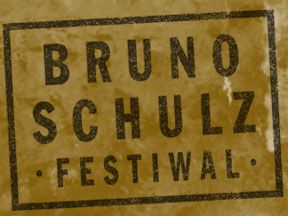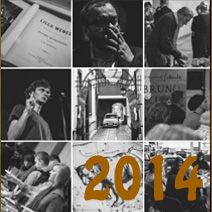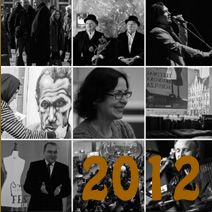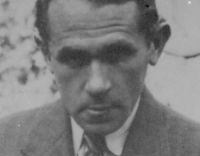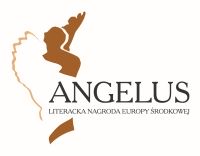The fifth day of BSF was mostly about reading, writing and constructing new texts… Briefly about a word. And all different ways and points of using it.
The festival Friday started with a science session titled “Nieoznaczoności Barańczaka”. About some chosen works of the poet talked among others Jarosław Fazan, Ewa Rajewska and Piotr Bogalecki.

The guests of the first afternoon meeting were a literary expert, historian of literature Ryszard Koziołek, literature philosopher and essayist Grzegorz Jankowicz and a literary critic and journalist Justyna Sobolewska. The discussion about reading began with the topic of Nobel Prize, awarded the day before to Bob Dylan. The debate about poetry of this “total artist” (He had been already awarded with an Oscar, Grammy and Pulitzer) became a starting point to considerations about what kind of readers are the participants of the meeting; what, how, and when they read. Ryszard Koziołek confessed, that he doesn’t treat reading only as a daily routine; in his case it is a specific pathology already. And this “disease” went so far for Grzegorz Jankowicz, that it is impossible for him to go out with only one book. Even if he knows perfectly well, that he will not read even a half of it. And however he did not tell how much books he owns, he confessed that during moving out, four and a half thousant tomes he… gave away. So at times, the “O czytaniu” (“about reading” red transate) panel could be also titled “crazy bibliophile’s diary”.

The anecdotes from different lives of the present guests were however only a pretext to ask some important questions. What is the individual and social value of literature, which permits us to use persuasion and violence (because how differently call inducement to read books)? What use there is of reading society? Why the reading community fell apart? And even when some constructive proposals appeared (for example the one telling that people again need to learn how to feel pleasure, because this what reading is: pleasure), generally the conclusions about reading in Poland aren’t something to be happy about.

For two years Bruno Schulz. Festival is tightly connected with Angelus Central European Literature Award. From that time, within the festival, readers can meet the nominated a day before the awarding. Not otherwise was this year: The guests of “Kawiarnia Europa” were Maciej Hen, Ułdzimir Niaklajeu, Kristina Sabaliauskaitė, Cristian Teodorescu and Varujan Vosganian (Unfortunately Anna Janko and Alvydas Šlepikas could not come to the meeting). Traditionally, already nominated, began with reading fragments of their books. Of course, in the original language – that was the only way for the melody of the work to resonate.

Chairing the meeting Wojciech Bonowicz and Szymon Kloska began the discussion from – and here is a surprise – questions about the Nobel Prize for Bob Dylan. No one expressed indignation because of awarding it to a “songer”, whereas Cristian Teodorescu emphasized strong relations between poetry and music – both of the forms can be an expression of freedom. And later the topic of memory came back. So firmly present on the previous day’s meeting with Martin Pollack (Angelus 2007 laureate) and Olga Tokarczuk. Because that is the assumption of this prize: it goes to the hands of Middle Europe writers, who force to reflections, for example about life and mortality, according to Kristina Sabaliauskaitė’s words, possible due to history’s medium. Writers often try, like archaeologists, dig out this, what was buried for a long time. You can’t forget the past. Varujan Vosganian emphasized. And though you can try to forget it, the only way for the humanity to survive, is remembrance and forgiveness.
However, how Maciej Hen accurately noticed, it is not an author’s thing, to philosophize about your own book. Every reader should feel like an author, drawing own conclusions from the lecture.

And in the evening it became… different, since the meeting’s topic was different poetry. Małgorzata Konieczna and Grzegorz Uzdański post their works in a virtual space: on Facebook. She – collages created from scraps of newspapers (“Wycinki w Termosie”), He – pastiches of poems of popular artists (“Nowe wiersze słynnych poetów”). A different poet, Tomasz Majeran – more classic in form, you could say – thorough questioned both artists: about inspirations, favorite works, unpublished texts, interactions with recipients. Everything to conclude in the end, that this poetry is not really so different – just a different, new form of word. Which, as it turns out, has future ahead: Facebook statistics show, that both Konieczna, and Uzdański are read and commented mostly by young people.

The day finished with already traditional on the Schulz festival poetical slam, with equally traditional elements: Tomasz Majeran and Michał Wandziak as the hosts of the meeting, sandglass measuring time for poetom-perfomerom and extra-time. For the best “kociokwik” (performance) jury – consisting of Małgorzata Konieczna, Grzegorz Uzdański, Miłosz Biedrzycki and vox populi – recognized the performance of Dżin, whose works were a brave composition combining erotica and politics. And the hearts of the public were stolen by a text about… a pullover.
Ewa Dąbrowska
fot. Max Pflegel Max frames/Wydawnictwo EMG
